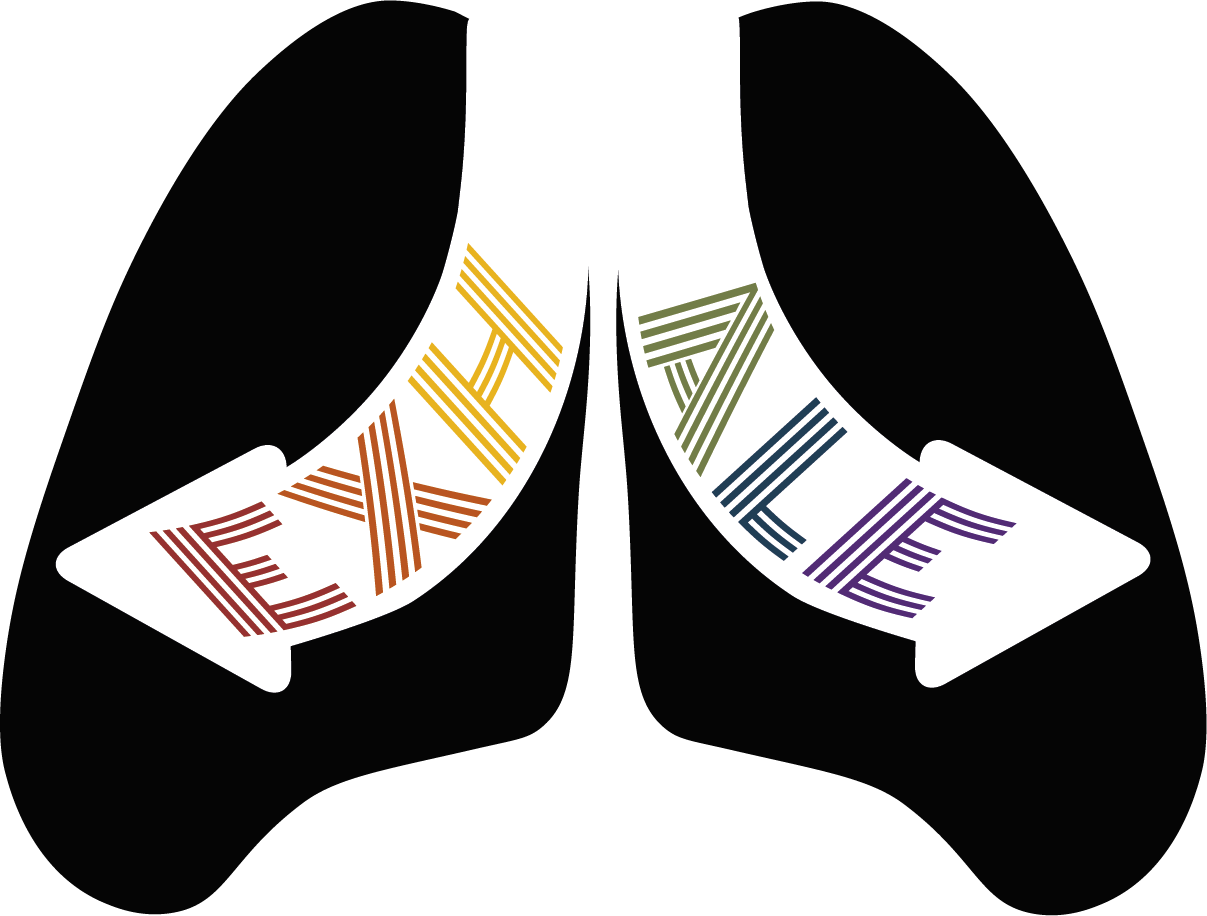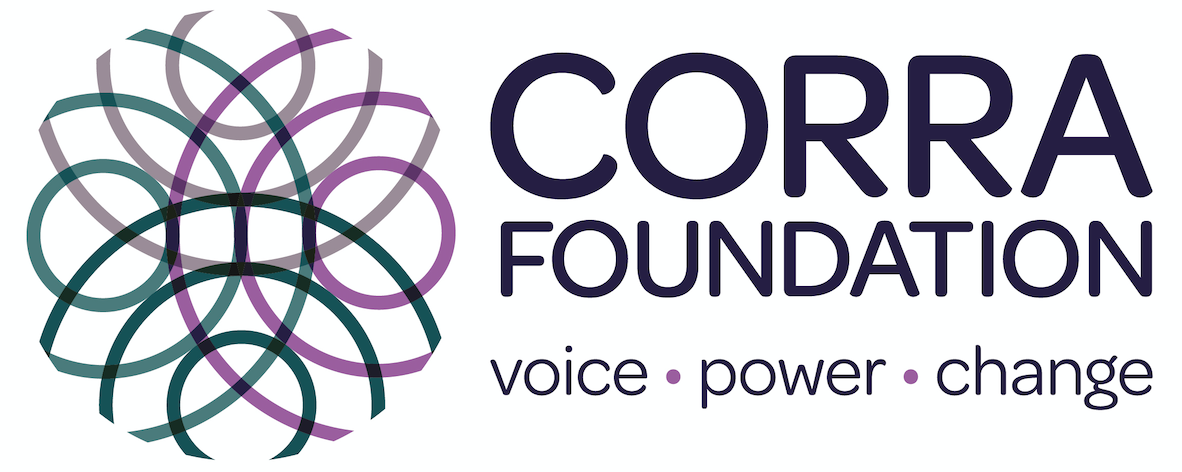Inclusive night-life for LGBT+ people from Black and minority ethnic backgrounds
Building on CRER’s continued efforts to highlight and tackle prejudice in Scotland’s night-time economy, we’ve teamed up with Mahasin from Exhale.Group to better understand the unique issues facing LGBT+ people from Black and minority ethnic (BME) backgrounds and how Scottish nightlife scenes can become more inclusive.
Mahasin is the founder of Exhale.Group CIC – an organisation working to support Queer, Trans and Intersex people of Colour in Glasgow and Scotland – and is the co-founder of LGBT+ inclusive club nights for Black and minority ethnic communities and people from SWANA (Southwest Asian and Northern African) backgrounds.
Conversations between Exhale and CRER on inclusive nightlife led to a half-day event in August 2024 for LGBT+ people from BME backgrounds, with lunch, a workshop with nightlife organiser and nightlife wellbeing officer Aki Hassan, and a community conversation with Lucien Staddon Foster (CRER) and Mahasin Ahmed on the issues faced by this community within nightlife spaces and potential solutions.
The importance of nightlife for LGBT+ Black and minority ethnic communities
Nightlife spaces have been historically important for the LGBT+ community, serving as a safe space to connect with others in the community and express gender and sexuality freely when homosexuality was criminalised. The legacy of nightlife spaces for the LGBT+ community still carries today, especially as we see a rise in homophobia and transphobia across the country. [1] [2]
However, although LGBT+ nightlife spaces aim to provide a safe space for the community, previous research from CRER revealed that those from Black and minority ethnic (BME) backgrounds who identify as LGBT+ can often be left out of this. To explore this further, CRER and Exhale.Group held a half-day community conversation with LGBT+ people from BME backgrounds in Glasgow in August 2024.
Attendees of the event highlighted several specific issues faced by LGBT+ people from BME backgrounds within nightlife spaces related to venue security, experiences of discrimination and accessibility.
Priorities of nightlife versus community needs
A persistent challenge for LGBT+ people from BME backgrounds in nightlife spaces is the disconnect between community needs and the priorities of mainstream nightlife management. Clubs and venues are typically centred around profitability, and spaces are designed with the majority in mind (heterosexual white individuals, or in LGBT+ spaces, homosexual white men), which guides decisions on what music is played, how events are marketed, etc. From the outset, this leads many LGBT+ people from BME backgrounds to feel excluded.
Furthermore, the security approach of venues can often overlook the nuanced needs of different communities. For example, during the community conversation, an instance was shared where an individual was mistaken for being too intoxicated due to the presentations of their autism, and they were forced to leave the venue. Misconceptions like this could be more prevalent for individuals in the LGBT+ community, as neurodivergent individuals are more likely to identify as LGBT+ than the general population. [3]
When compounded with the potential for racial bias, as demonstrated by CRER’s previous research, LGBT+ people from BME backgrounds can be subjected to profiling and prejudice linked to multiple aspects of their identity, which can lead to unfair removal or denial of entry from venues.
This pattern of unfair removals can leave people in vulnerable positions, as evidenced during the community conversation. For example, there were scenarios where security staff acted harshly and removed individuals from the venue without allowing them to go back inside to find their friends or their belongings. This meant that they would be left alone late at night and would feel unsafe.
Furthermore, the issues faced by BME communities – such as racial profiling, harassment, and discrimination – are often disregarded or inadequately addressed by venue staff. Venue security staff tend to focus on controlling physical altercations or intoxication, and lack the training required to recognise and respond to racial or LGBT+ discrimination, especially in the form of microaggressions. We also heard examples from LGBT+ staff from BME backgrounds working in nightlife spaces not being supported by venue security and management when facing racism from patrons and/or other staff members.
The group shared that these negative experiences can leave them feeling uncomfortable and powerless within many of Glasgow’s nightlife spaces, such that they tend to avoid them altogether.
Community-driven solutions
Due to the exclusionary practices of mainstream venues, individuals in the workshop spoke about seeking alternative nightlife events organised by the community, for the community, as a way of reclaiming nightlife culture. These alternative spaces can be a form of resistance and a way to hold onto community-centred experiences without compromising safety or authenticity.
Although alternative spaces provide LGBT+ BME communities with a place to be and meet, the group discussed the lack of venues within Scotland that support alternative community-driven events, impacting the frequency and sustainability of these events.
The ‘DIY’ nature of these events and the fact that they are organised by the community can limit the level of financial resources available to those planning. Ticket sales are also typically lower than other LGBT+/mainstream events, as the target community is much smaller. To help with this, many BME-led LGBT+ events are open to everyone who respects the ethos of the event. However, in some cases, the influx of attendees from outside the original community can be harmful, as some of the unique safety and care practices that are usually prioritised in these spaces can become diluted and compromised.
Furthermore, due to a lack of venues, these alternative events often need to host their nights in mainstream nightlife venues, whose infrastructure can fail to provide adequate support for the values of community-driven events. This means that event organisers are frequently left without clear avenues for recourse when they, or partygoers, experience harm, lacking allies within venue management or security who might otherwise advocate for them.
As a result, nightlife organisers from LGBT+ and BME backgrounds are tasked with the challenge of maintaining a space that feels inclusive and safe whilst lacking the resources and support to do so.
Reimagining nightlife spaces
Creating inclusive nightlife spaces requires rethinking the traditional roles of venue staff and patrons alike. There is a pressing need for nightlife venues to establish accountability frameworks that prioritise the safety and wellbeing of marginalised groups - instead of simply viewing security as a tool for enforcing order.
A new model might empower everyone (including security staff, venue operators and patrons) to act as co-facilitators of a safer, welcoming space. In this sense, fostering a culture of shared responsibility and community care can be a powerful approach.
Some solutions proposed include:
Venues implementing comprehensive safety policies that explicitly consider the needs of minority and marginalised groups that everyone is required to uphold.
Establishing community-led welfare initiatives to support venues and events by providing trained welfare officers who can handle crises with community-specific sensitivity and care.
Training security and venue staff on inclusive, trauma-informed practices.
A pledge-based system where venues publicly commit to anti-racist values, helping patrons feel seen and valued within these spaces and setting expectations for behaviour to deter discrimination.
Furthermore, to support alternative nightlife events, policymakers and institutions should consider how they could contribute by providing grants, publicity, or resources to LGBT+ BME organisers whilst respecting the unique culture and independence of these spaces.
Participants in the conversation referenced the late ‘Queer co-operative’ bar Bonjour and Stereo in Glasgow as positive examples of supportive spaces for LGBT+ BME groups in the nightlife economy.
Nightlife is integral to youth culture, and it is especially important for LGBT+ communities to have a place where they feel like they belong, so it is crucial that no one is excluded from this. Venues must do more to support the inclusion of marginalised groups and re-orientate towards a community safety approach.
Want to learn more about CRER’s work to tackle prejudice in Scotland’s night-time economy? Read more about CRER’s research and campaigning here.

Want to learn more about Exhale.Group CIC? Visit their website here.
Footnotes and References
[1] Johnson & Summers (2005), Gay and Lesbian Bars. GLBTQ Archive.
[2] Stonewall (2023), New data: Rise in hate crime against LGBTQ+ people continues, Stonewall slams UK Gov ‘inaction’.
[3] NHS Dorset (2023), Neurodiversity - Living your life: LGBTQ+

This work was supported by a Racial Equity Grant from the Corra Foundation as part of their wider efforts to tackle racism in Scotland, including Islamophobia and antisemitism.

